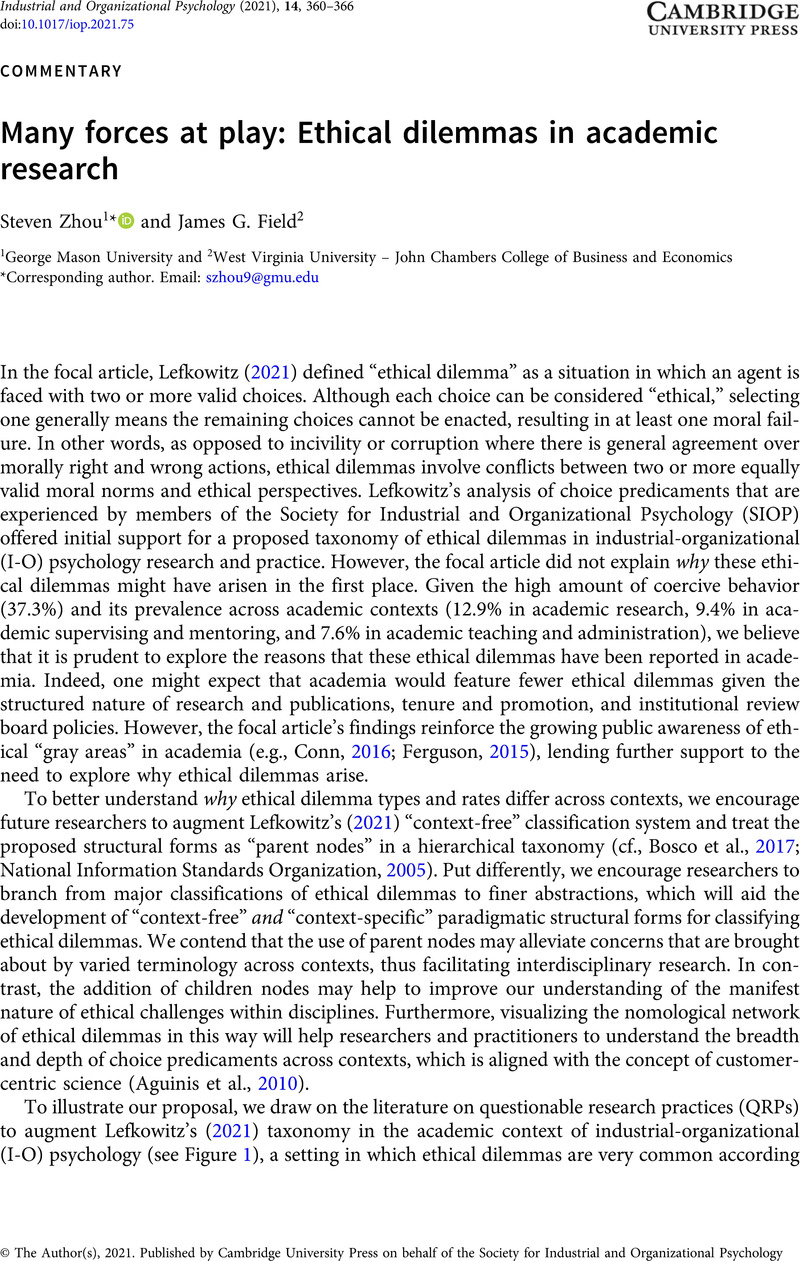Zhou, S., &
Kuykendall, L. (
2021, April 15–17).
When infrastructure and ethics collide: A panel on ethical policy making in higher ed [Panel discussion]. The 36
th Annual Conference of the Society for Industrial and Organizational Psychology, Online.
Google Scholar 